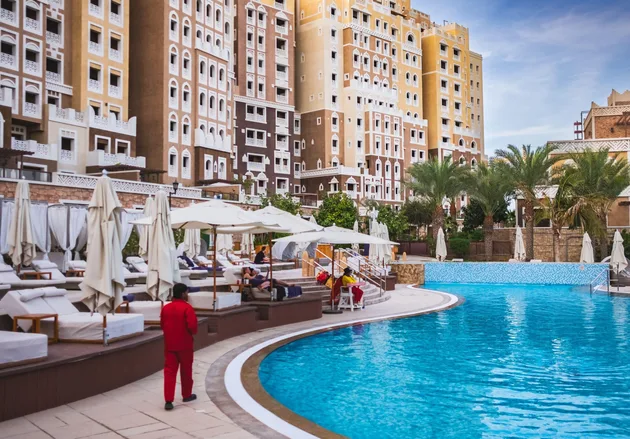Dubai plans to widen access to the real-estate sector by allowing tokenisation, which converts real-estate assets into digital tokens on a blockchain.
This will enable the fractional ownership of properties, which in theory will attract more retail and institutional investors, a senior official in the emirate’s real estate regulator has said.
Fractional ownership allows investors to purchase smaller shares, lowering the financial entry barrier and widening access to Dubai’s real estate market.
The current regulatory and administrative processes for fractional ownership are complex, limiting the number of platforms offering such services.
Companies must secure approvals from multiple regulatory bodies, including the Dubai Financial Services Authority, establish special purpose vehicles and manage multiple fees, which has constrained the sector’s growth.
Mahmoud Al Burai, a senior adviser at the Dubai Land Department, said the regulator aims to streamline these processes.
The tokenisation project, currently in the regulatory sandbox phase, will integrate “know-your-customer” security and anti-money laundering protocols in collaboration with the Virtual Assets Regulatory Authority, he explained.
This approach aims to simplify compliance and reduce costs for platforms, and enhance investor protection.
“We look at the technology as a way of producing a new investment product,” Al Burai told AGBI at a conference last month.
“We soon want to have everyone with AED500 [to be able to] access and buy a token of the Dubai real estate market and benefit from its economic value.”
- Frank Kane: Dubai home renovations: enough to drive a man to drink
- Property app Stake to launch in Saudi Arabia
- Middle East property tech draws venture capital interest
The tokenisation platform is expected to draw a range of businesses, including technology companies, investment platforms and property developers.
Companies using traditional crowdfunding methods could also benefit from lower costs and streamlined processes under the new system.
“This will democratise real estate investment [and] allow small investors to invest in Dubai,” Al Burai said.
Dubai’s real estate market, which recorded AED634 billion ($172 billion) in transactions last year, aims to achieve AED1 trillion in annual transactions in the near future, he said.
“This means we need new products for the industry – co-living, co-working, senior housing and affordable housing at the core of what we do.”


